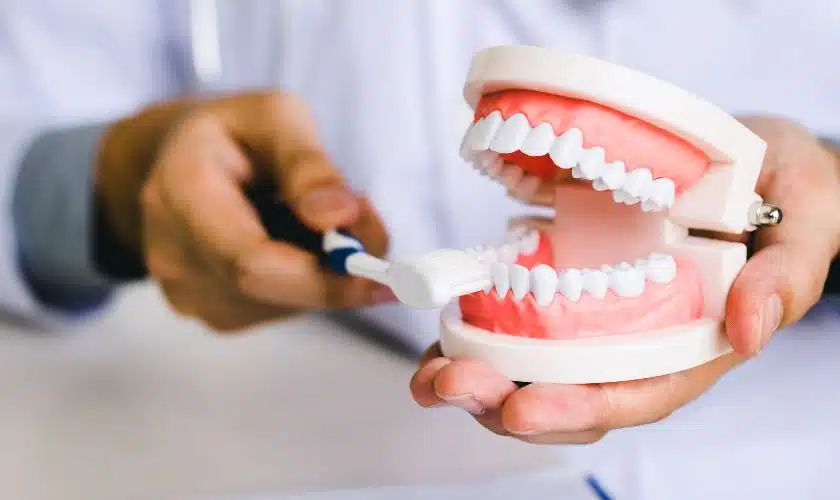How Preventive Dental Visits Can Lower Long-Term Costs

Introduction
Preventive dental visits provide a brighter smile and are a cornerstone of long-term wellness and financial health. Committing to regular dental check-ups and professional cleanings lays the groundwork for strong oral health. It minimizes the odds of unexpected dental emergencies or complex procedures that could drain your finances. Finding the right dental insurance is another crucial piece of the puzzle; plans like PPO dental plans are designed to give individuals and families easy access to high-quality preventive care, making it more likely that people can consistently keep up with their oral health needs.
Both dental and medical professionals routinely endorse preventive dental care as an essential part of health maintenance. While skipping a dental appointment may seem like an easy way to save money in the moment, those small savings often pale compared to the cost of major procedures or the management of chronic diseases that could have been prevented or identified earlier. In reality, taking preventive action today safeguards your health and finances in the years ahead.
The Link Between Oral Health and Overall Health
A growing body of scientific evidence highlights the strong connection between oral health and overall health. The mouth is often considered a reflection of the body’s general health, as oral diseases like gum disease and tooth decay can signal—and even worsen—systemic health issues. For instance, untreated gum inflammation doesn’t just remain localized: it can lead to more serious consequences such as contributing to heart disease, complicating diabetes management, and even increasing the risk of stroke. Pregnant women with poor oral health have shown higher rates of premature births and low birth weight babies, further demonstrating the far-reaching impact that oral health can have.
Inflammation from gum disease can worsen chronic conditions. The bacteria responsible for oral diseases can enter the bloodstream, aggravating problems in other areas of the body and making it harder to control illnesses like diabetes or cardiovascular diseases.
Cost Savings from Preventive Dental Care
Postponing dental check-ups may not immediately reduce healthcare spending, but consistent preventive care benefits oral health and leads to significant cost savings. Regular dental appointments reduce dental emergencies and medical expenses, especially for coronary artery disease patients. Regular monitoring can prevent serious oral infections and systemic issues, reducing the need for expensive medical treatments.
Preventive Measures That Make a Difference
High-impact preventive dental care relies on both professional services and daily self-care. Several key measures protect your teeth and gums and lower your risk for serious dental issues:
- Regular dental exams and cleanings: Dentists and dental hygienists are trained to remove hard-to-reach plaque and tartar, spot early signs of decay or gum disease, and intervene before minor concerns become major issues. These routine visits can catch problems at their earliest, most treatable stage.
- Fluoride treatments: Fluoride is a naturally occurring mineral that helps rebuild enamel and makes teeth more resistant to acid attacks that cause cavities. Fluoride treatments are especially vital for children and those more susceptible to decay, and regular applications can prevent the need for fillings and crowns down the line.
- Dental sealants: Sealants provide an extra layer of protection on the chewing surfaces of the back teeth, where cavities most commonly develop. For children and adults alike, receiving sealants can significantly lower the chances of developing deep tooth decay, especially in hard-to-clean areas.
- Oral health education: Dental professionals provide guidance on effective brushing and flossing techniques, the safest oral hygiene products, and tips for making tooth-friendly dietary choices. This education empowers patients to take charge of their oral health every day, not just during visits to the dentist.
Incorporating these preventive steps creates a powerful shield against dental disease. With sustained habits and continued support from dental care professionals, individuals can often avoid the pain, inconvenience, and high costs of advanced dental and medical treatments.
Impact on Employers and Insurance Providers
Preventive dental care benefits not only patients but also employers and insurance providers. Employers who promote routine dental visits through insurance plans see declining claims for major dental procedures, reducing insurance premiums, and supporting a healthier workforce. This leads to higher productivity, improved morale, and lower absenteeism. Insurance providers also benefit from prioritizing preventive services, controlling costs, and keeping plan members healthier for longer.
Addressing Barriers to Preventive Care
While the evidence supporting preventive dental care is overwhelming, many individuals still do not receive routine care due to significant barriers. Financial hardship and limited access to affordable dental insurance are the most persistent obstacles. For those living in underserved areas, transportation, lack of local providers, and insufficient education on the importance of oral health may also play a role. Addressing these issues requires targeted action: expanding dental coverage through plans, promoting community outreach, and launching public health campaigns to build awareness about the benefits of preventive care.
Collaboration between governments, public health organizations, employers, and insurers is essential. By implementing educational programs and affordable insurance options, more people can access the routine dental visits that are critical for lifelong oral and overall health. The clinical and financial outcomes are clear—making preventive dental care easier to access benefits individuals and communities alike.
Conclusion
Preventive dental care is a smart, cost-effective investment in your future health and financial stability. Regular check-ups and cleanings, especially when made affordable through robust insurance options, dramatically reduce the likelihood of emergency dental procedures and help manage or even prevent some chronic health conditions. You can avoid unexpected expenses and enjoy a healthier, happier life by prioritizing prevention. To learn more about how preventive dental care pays off, especially for those with chronic illnesses like diabetes and heart disease.





